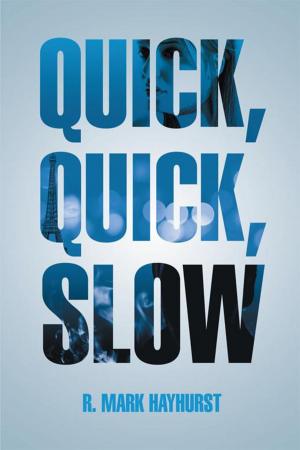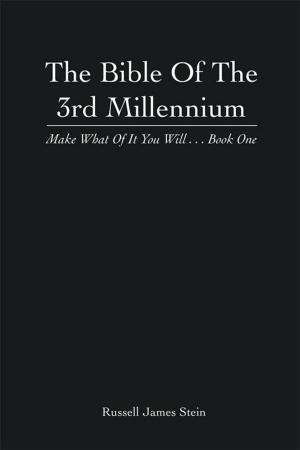“All Things to All Men”
(The Apostle Paul: 1 Corinthians 9: 19 – 23)
Nonfiction, Religion & Spirituality, Theology| Author: | Derek van Rensburg | ISBN: | 9781469155616 |
| Publisher: | Xlibris UK | Publication: | February 14, 2012 |
| Imprint: | Xlibris UK | Language: | English |
| Author: | Derek van Rensburg |
| ISBN: | 9781469155616 |
| Publisher: | Xlibris UK |
| Publication: | February 14, 2012 |
| Imprint: | Xlibris UK |
| Language: | English |
How is it at all possible to project an image of being narrow-minded and judgemental and, at the same time, imagine that you can be an effective witness for Jesus Christ? The teaching of Jesus Christ unambiguously rejects such aberrations and, by definition, His Gospel of Grace renders them inadmissible. This is the paradox which Derek van Rensburg sees at the heart of the very conservative brand of Evangelicalism which has been his spiritual home for more than half a century. In order to facilitate affordable Bible studies, Van Rensburg has, over many years, compiled his own notes for distribution among the participants in his study sessions. Among others, wife Wendy has encouraged him to publish these notes and a selection of these comprise this book which he has entitled ALL THINGS TO ALL MEN in the spirit of the Apostle Paul. This title, taken from First Corinthians 9:22, is an expression of Van Rensburgs conviction that the Gospel of Gods Grace through Jesus Christ has often been hamstrung by a variety of anathemas and exclusivities. While this Gospel is so central to the conservative Evangelical Christian tradition to which he belongs, he identifies typical negative trends in this tradition which compromise the Gospel. A Christianity obsessed with anathemas is hardly a vehicle for the effective communication of Gods Grace to a hurting and broken world. By contrast, he notes the transformation of the pharisaically obsessed Saul of Tarsus into the Gospel-obsessed Apostle Paul. Coming from the one-time compulsive persecutor of the early church, with all his pharisaical hang-ups, the following quotation from First Corinthians 9:19-23 expresses a radical conversion-transformation. It also constitutes the Christ-like communication of the Gospel of Grace to a Christless world. Paul said: Though I am free and belong to no man, I make myself a slave to everyone, to win as many as possible. To the Jews I became like a Jew, to win the Jews. To those under the law I became like one under the law (though I myself am not under the law), so as to win those under the law. To those not having the law I became like one not having the law (though I am not free from Gods law but am under Christs law), so as to win those not having the law. To the weak I became weak, to win the weak. I have become all things to all men so that by all possible means I might save some. I do all this for the sake of the gospel, so that I may share in its blessings. How different that is to a very great deal of the conservative evangelicalism the author has known for many, many years. If evangelism really is fundamental to evangelicalism then the evangelical exclusivists among them need to take a good hard look at 1 Corinthians 9:19-23. This book, ALL THINGS TO ALL MEN is in two parts. Part One is comprised of six essays expressing the authors views on some contentious topics germane to the above-mentioned paradox. These essays are entitled: 1. Standpoint 2.I believe the Bible 3. In the beginning God created and Christians 4. Difficult Old Testament passages 5. The Resurrection (1 Corinthians 15) 6. Christian Inconsistency Part One is fairly polemical and should, accordingly, stimulate discussion on that level. Part Two consists of seven Bible studies in which the authors orthodox Evangelical theological grounding is very evident. He is committed to this theology but is convinced that certain important aspects of it are often misrepresented in the habits and practices of Christians and institutions associated with it. This conviction prompts the occasional searching question among more regular questions constituting the general method of thes
How is it at all possible to project an image of being narrow-minded and judgemental and, at the same time, imagine that you can be an effective witness for Jesus Christ? The teaching of Jesus Christ unambiguously rejects such aberrations and, by definition, His Gospel of Grace renders them inadmissible. This is the paradox which Derek van Rensburg sees at the heart of the very conservative brand of Evangelicalism which has been his spiritual home for more than half a century. In order to facilitate affordable Bible studies, Van Rensburg has, over many years, compiled his own notes for distribution among the participants in his study sessions. Among others, wife Wendy has encouraged him to publish these notes and a selection of these comprise this book which he has entitled ALL THINGS TO ALL MEN in the spirit of the Apostle Paul. This title, taken from First Corinthians 9:22, is an expression of Van Rensburgs conviction that the Gospel of Gods Grace through Jesus Christ has often been hamstrung by a variety of anathemas and exclusivities. While this Gospel is so central to the conservative Evangelical Christian tradition to which he belongs, he identifies typical negative trends in this tradition which compromise the Gospel. A Christianity obsessed with anathemas is hardly a vehicle for the effective communication of Gods Grace to a hurting and broken world. By contrast, he notes the transformation of the pharisaically obsessed Saul of Tarsus into the Gospel-obsessed Apostle Paul. Coming from the one-time compulsive persecutor of the early church, with all his pharisaical hang-ups, the following quotation from First Corinthians 9:19-23 expresses a radical conversion-transformation. It also constitutes the Christ-like communication of the Gospel of Grace to a Christless world. Paul said: Though I am free and belong to no man, I make myself a slave to everyone, to win as many as possible. To the Jews I became like a Jew, to win the Jews. To those under the law I became like one under the law (though I myself am not under the law), so as to win those under the law. To those not having the law I became like one not having the law (though I am not free from Gods law but am under Christs law), so as to win those not having the law. To the weak I became weak, to win the weak. I have become all things to all men so that by all possible means I might save some. I do all this for the sake of the gospel, so that I may share in its blessings. How different that is to a very great deal of the conservative evangelicalism the author has known for many, many years. If evangelism really is fundamental to evangelicalism then the evangelical exclusivists among them need to take a good hard look at 1 Corinthians 9:19-23. This book, ALL THINGS TO ALL MEN is in two parts. Part One is comprised of six essays expressing the authors views on some contentious topics germane to the above-mentioned paradox. These essays are entitled: 1. Standpoint 2.I believe the Bible 3. In the beginning God created and Christians 4. Difficult Old Testament passages 5. The Resurrection (1 Corinthians 15) 6. Christian Inconsistency Part One is fairly polemical and should, accordingly, stimulate discussion on that level. Part Two consists of seven Bible studies in which the authors orthodox Evangelical theological grounding is very evident. He is committed to this theology but is convinced that certain important aspects of it are often misrepresented in the habits and practices of Christians and institutions associated with it. This conviction prompts the occasional searching question among more regular questions constituting the general method of thes















